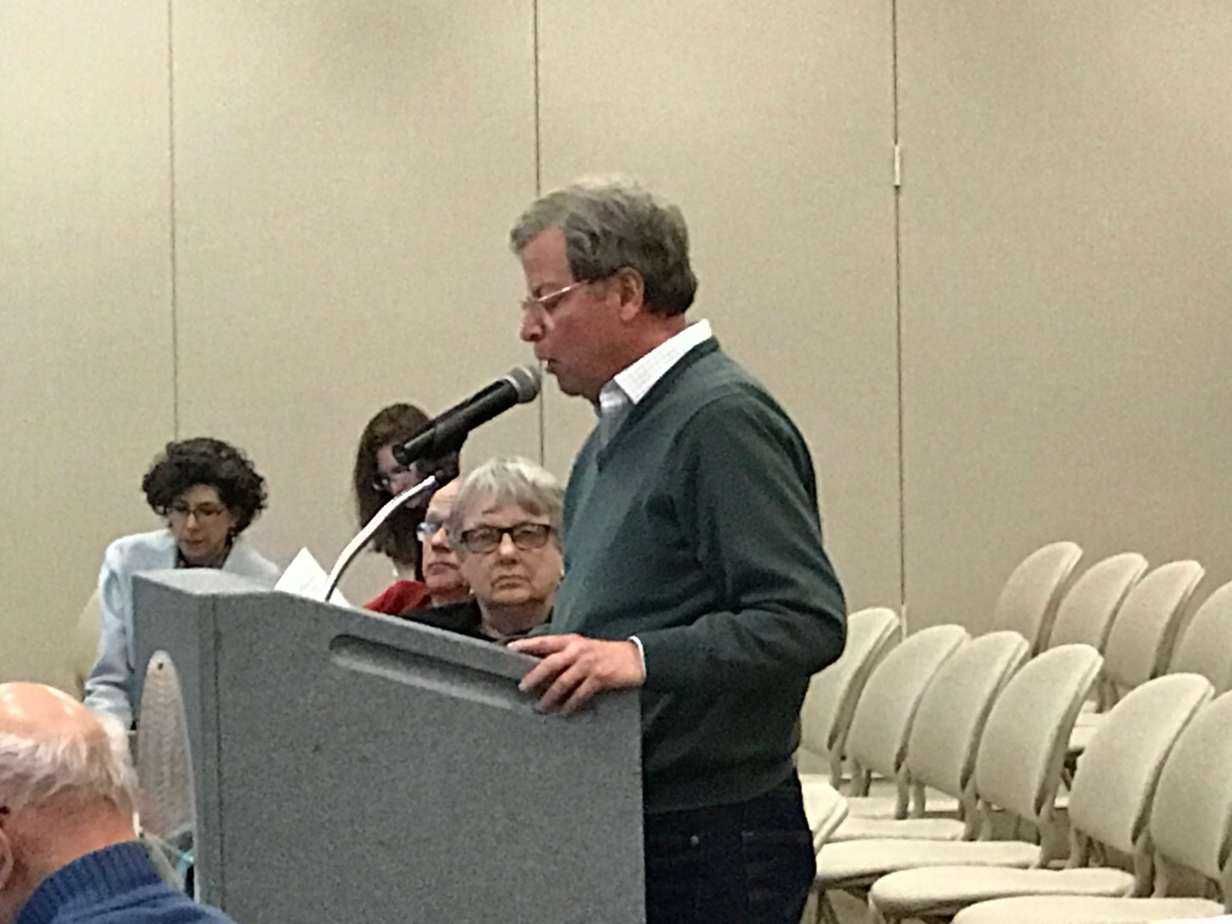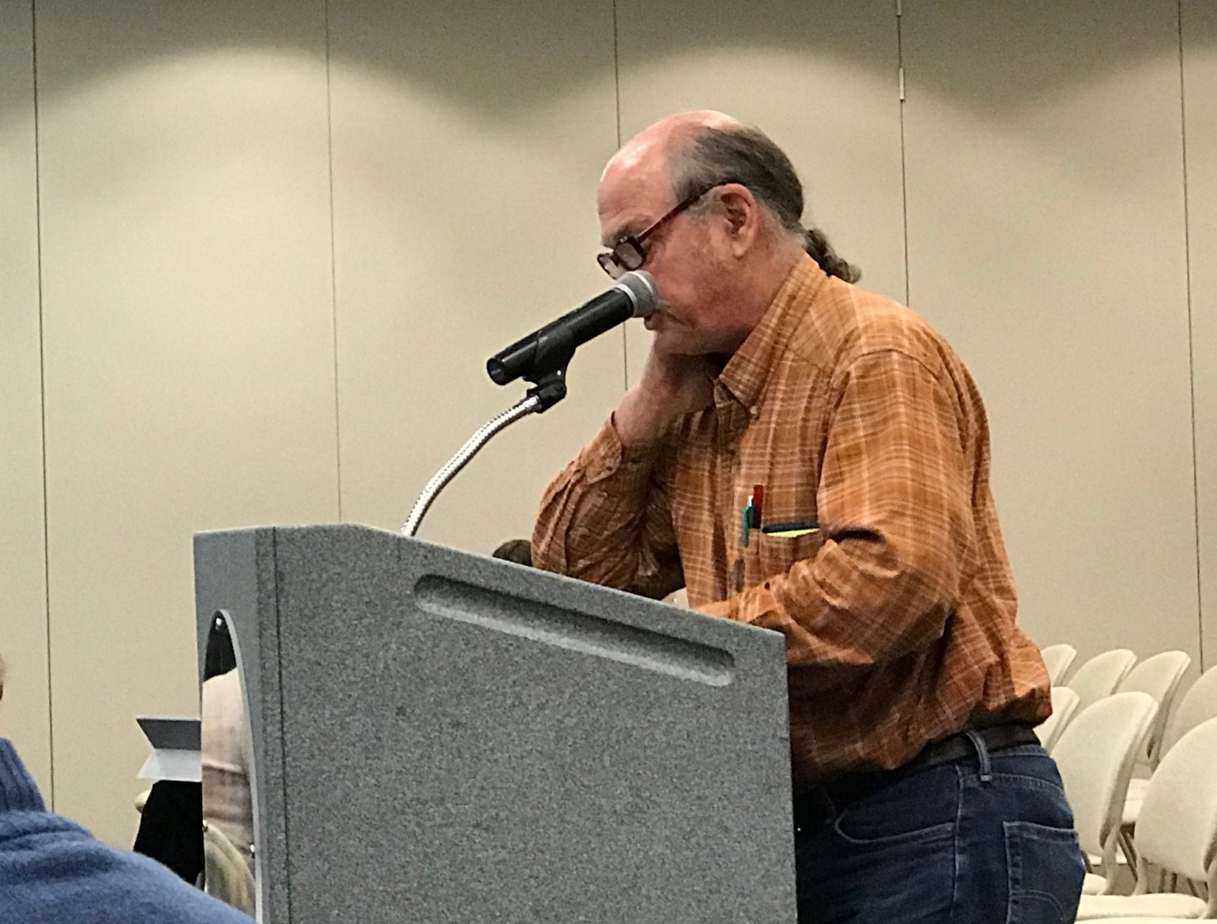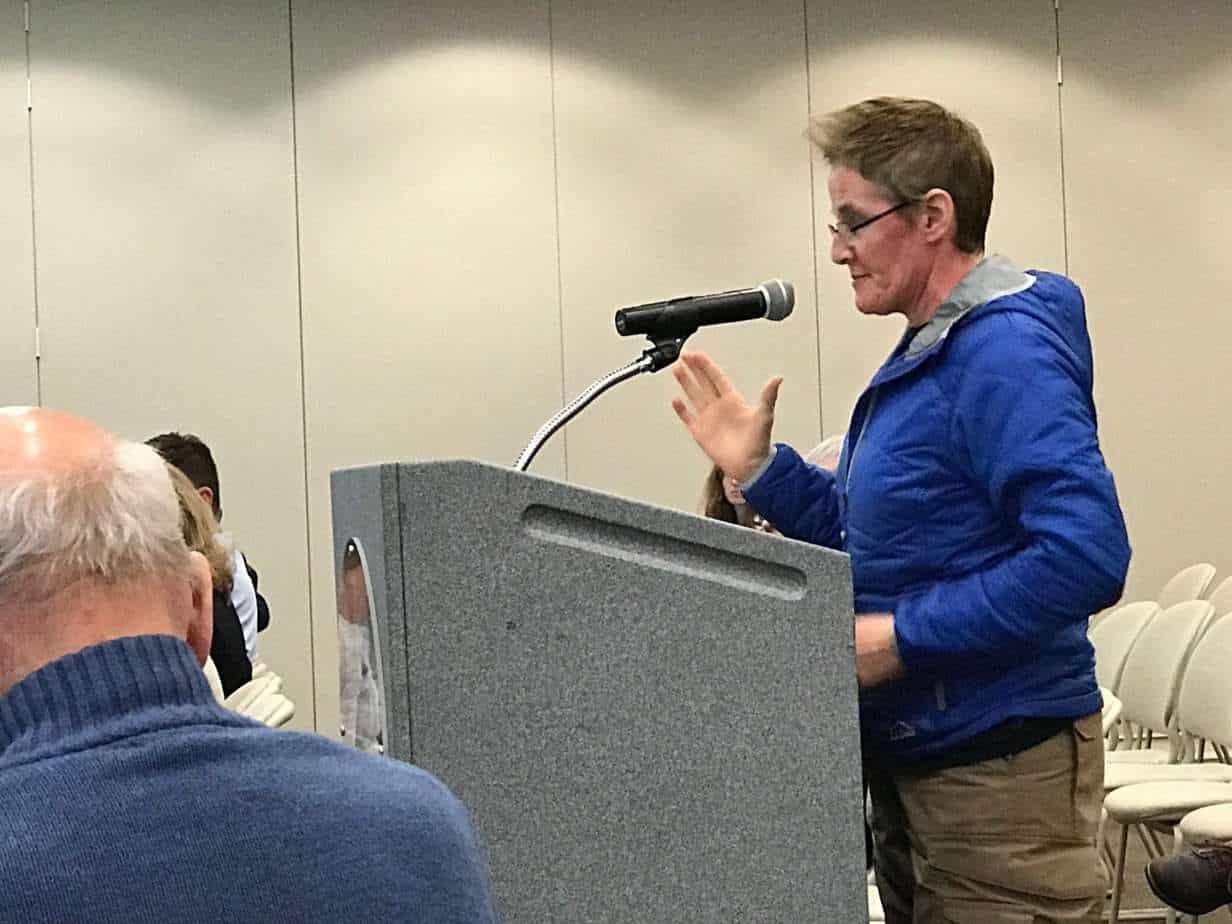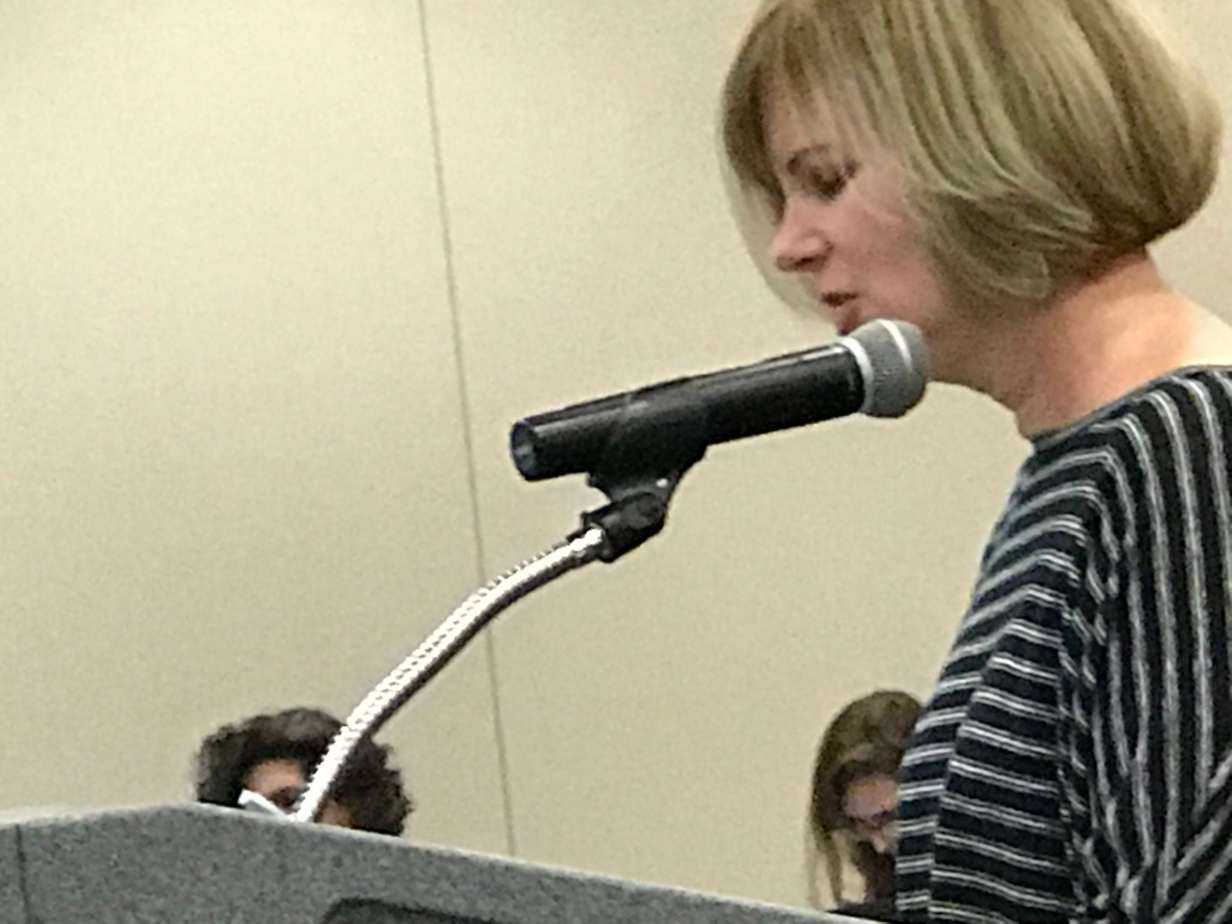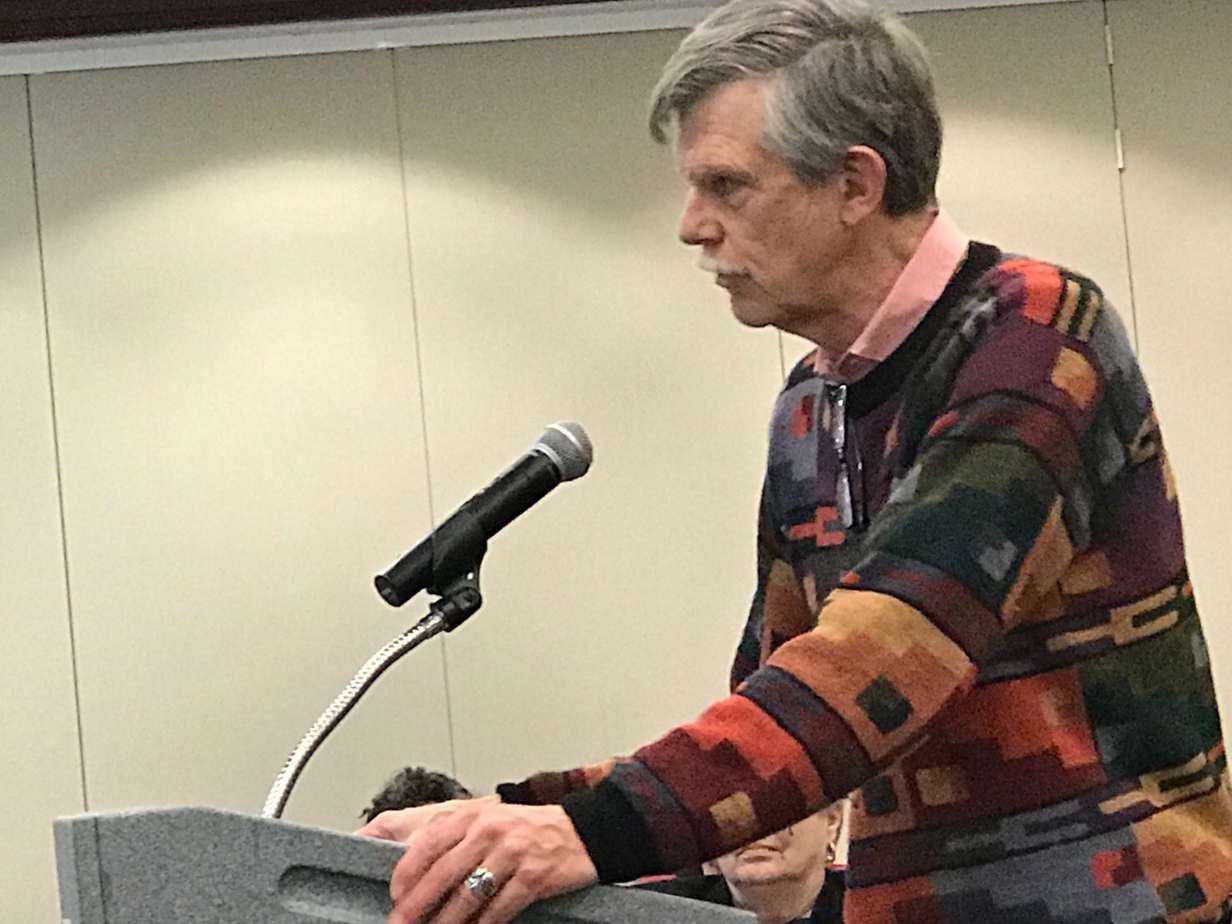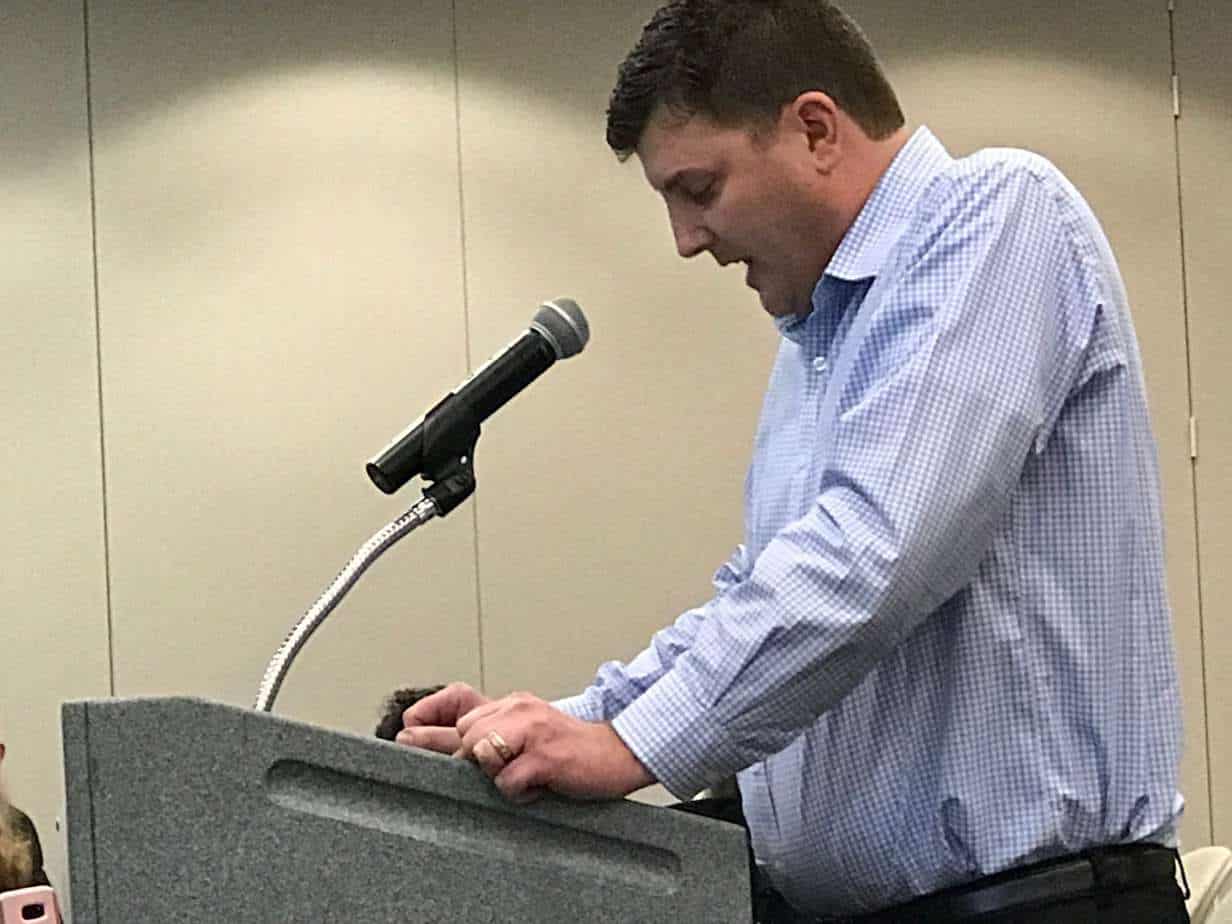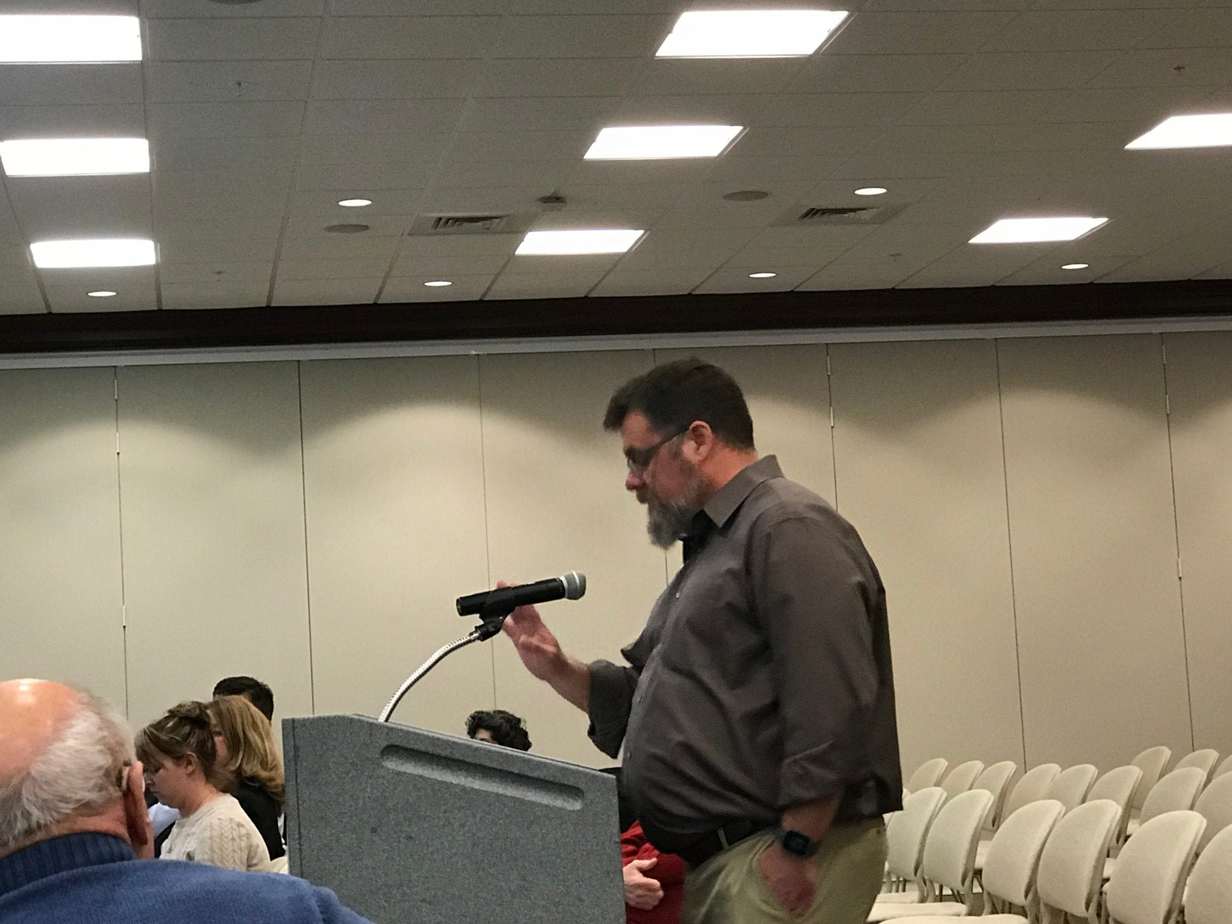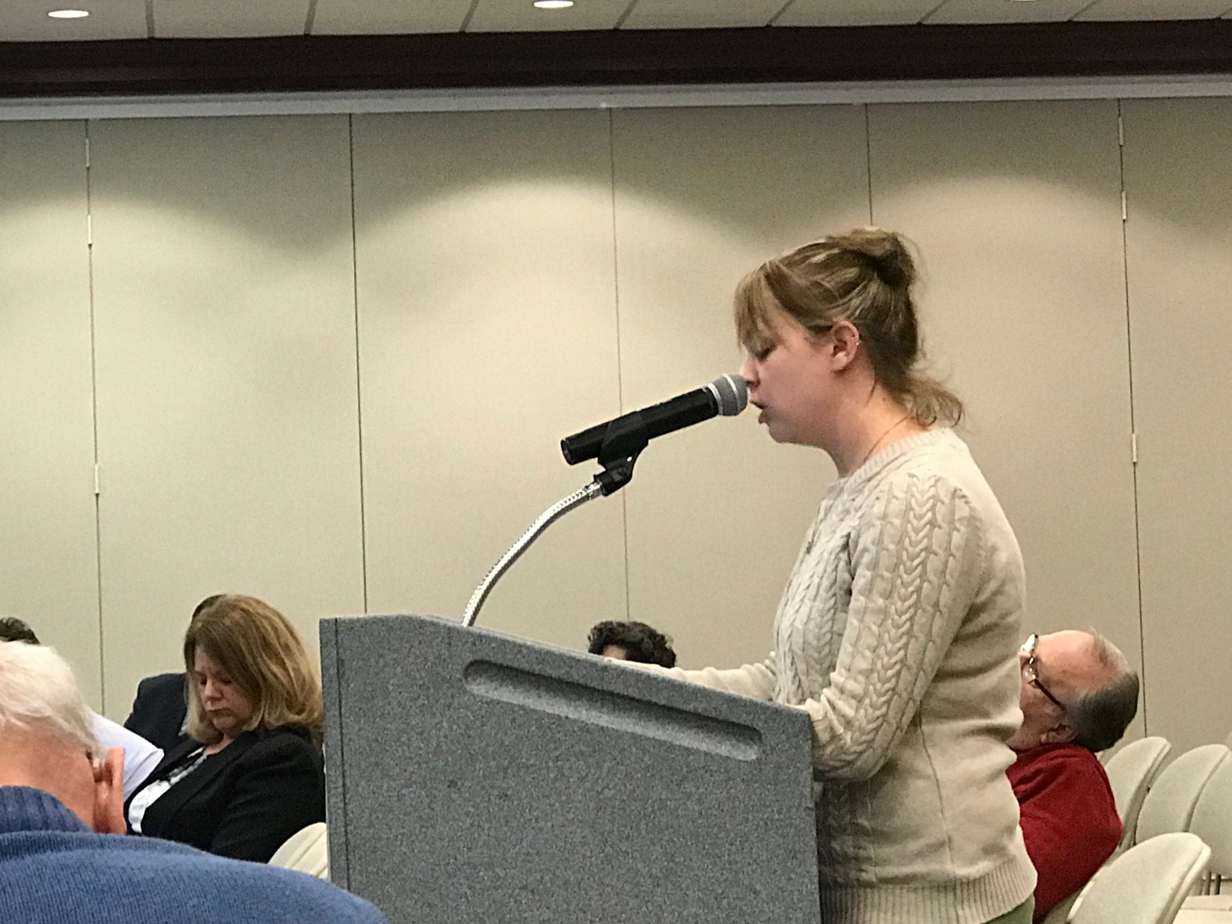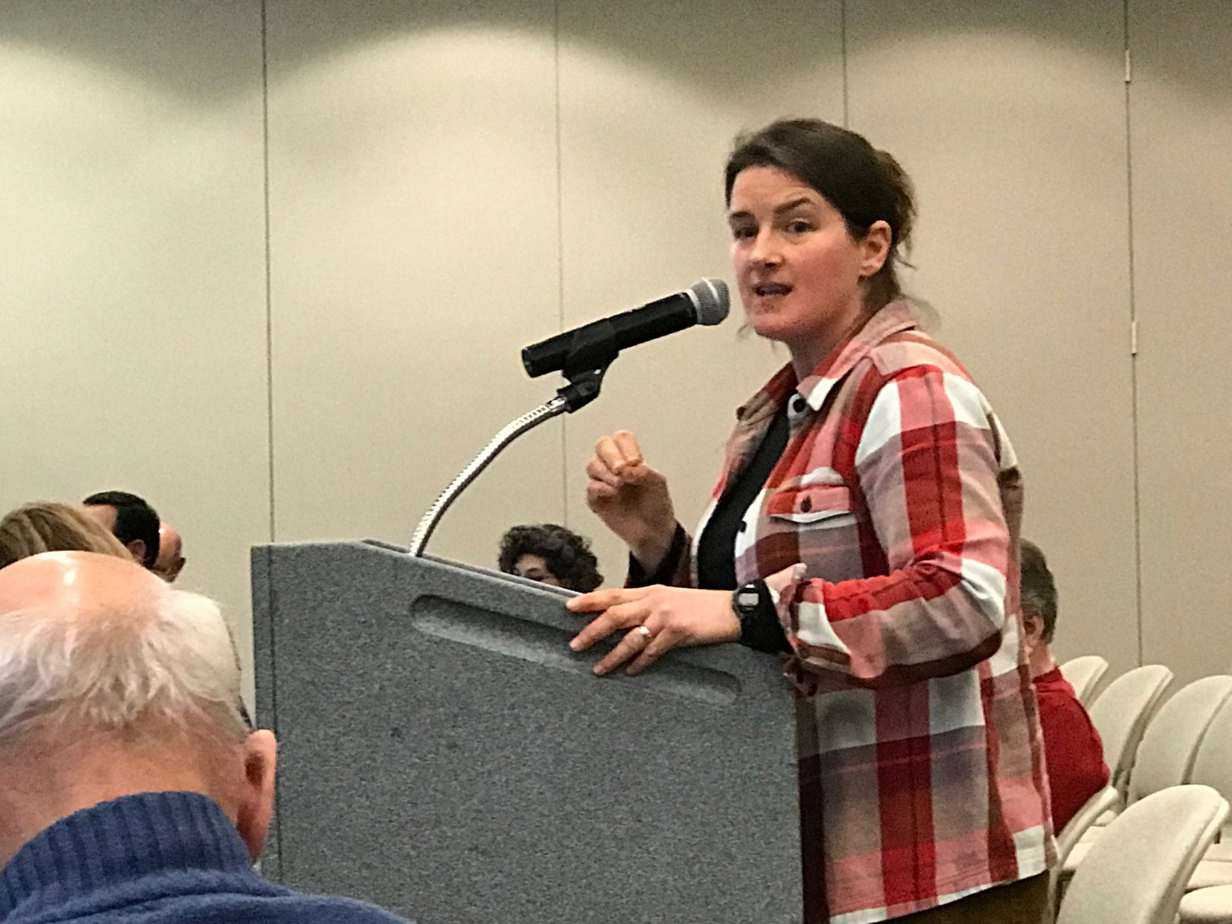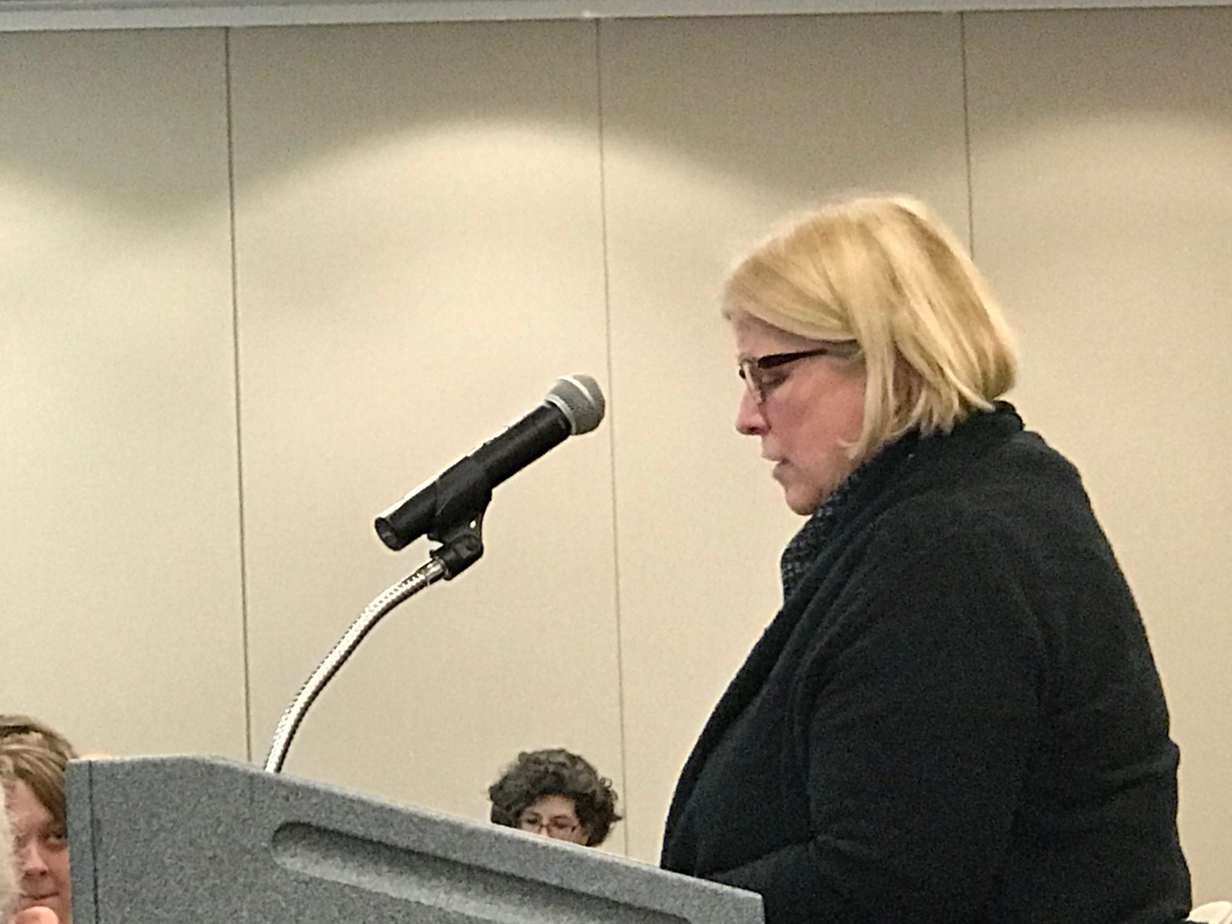Fracking ban comments from Schnecksville, Pa
We've heard from a lot of people all over the watershed, with lots of different opinions. Let's listen more closely to the people who spoke at the fifth fracking ban public hearing in Schnecksville, Pa. Here are a handful of photos of speakers with a short summary of their comments.
Donald Myles
He is the chair for the Lehigh Valley Group of the Pennsylvania Sierra Club. He supports the fracking ban but was concerned about fracking wastewater coming into the Delaware watershed. He noted that there are -- according to the Environmental Protection Agency -- 1600 chemicals in that water for which the EPA has set standards, but there are no set standards for 154.
Bryn Hammarstrom
He made the drive to testify, as one who grew up in Lehigh County, that fracking waste is a part of fracking's harm. The DRBC must ban fracking and must not allow Delaware water to be used to support fracking. Even more, dirty water from fracking must not be allowed in the Delaware basin, which would endanger the health of all those living downstream.
Joe Hoffman
He talked to area high schools and found the students to be interested and knowledgeable and against all three resolutions: fracking, water import, and water export. He suggested a youth forum since these decision affect them now and in the future.
Jeanne Cimorelli
A resident of Orange County, N.Y., came to Schneckville, Pa, because she regularly visits the Delaware and enjoys it. She noted that both sides of the fracking issues agreed on one thing; that no harm should come to the river. She said despite that, things fail and there's no way to guarantee that the river will stay safe. Do your best, she urged the DRBC, to safeguard our water.
Beth Kelly
She is the co-chair of the Environmental Action Committee of the League of Women Voters of the City of New York. She came from the city with others who supported a fracking ban but did not support any water import or export. She questioned why there were no hearings in New York City, New York, New Jersey or Delaware since all those places are affected by what happens to the Delaware River. She was also concerned that the companies who frack are not required to make public the ingredients of their fracking solution.
Mark Lichty
Introduced himself as a business owner who bought into the gas companies’ propaganda ten years ago, and converted his manufacturing plant from oil to gas spending over $200,000 on the conversion. The money he spent isn't available to spend on another conversion to alternative fuels. He believes that investing billions in a clean energy future is critical. He is the executive producer of "groundswell rising," a movie about fracking. (groundswellrising.com)
Bill Shaughnessy
He lives in Montgomery County and owns land in Wayne County. He is an organic gardener who enjoys fishing in the Delaware River. For him, the true environmentalists are the landowners. He opposes the Delaware River Basin Commission's "land grab," and says the DRBC have no right to take his land rights. "This is not a public hearing, it's a circus."
Blayne Diacort
He is a hydrogeologist familiar with its regulation and effect on the Susquehanna River Basin. He does not support the fracking ban --"I believe in the science of what we do in my industry – that we have the ability to successfully produce clean burning natural gas while also being great stewards of the environment." He suggests that all those who oppose fracking should take a closer look at how it's regulated in the Susquehanna River Basin.
Nicole Jacobs
She is the Pennsylvania director of EnergyinDepth.org. Her husband works in the fracking industry and her family, which includes her two daughters, lives within a mile of a fracking site. She doesn't support a ban on fracking. She says that Pennsylvania's two significant industries, tourism and agriculture, benefit from fracking.
Faith Zerbe
She is the granddaughter of miners, and wanted to remind the DRBC that extracting fossil fuels can leave behind a long legacy of pollution. The abandoned coal mines of Pennsylvania are still leaking acidic water. Of all the water on the planet, she said, only 1% is drinking water, so she wants to ban fracking and the import or export of water.

